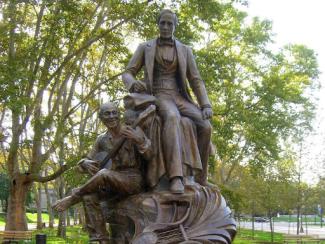
Considered by many historians to be the "Father of American Music," Stephen Foster wrote Camptown Races for "Foster's Plantation Melodies" in 1850. The song became immediately popular. Even Abraham Lincoln used it for his 1860 political campaign.
The vocabulary in the song "De Camptown ladies sing dis song — Doo-dah! Doo-dah!/ I come down dah wid my hat caved in — Doo-dah! Doo-dah!/ I go back home wid a pocket full of tin -- Oh! Doo-dah day!" was meant to caricature Black speech patterns to make Black people sound ignorant. Even worse, you’ll never guess who was the first to perform it on camera.
A white actor named Al Jolson was the first to perform Camptown Races on film. Worst of all, Jolson did it in blackface, as a deliberate insult to Black people and our culture.
Camptown Races has since been performed in blackface in Looney Tunes cartoons. Although most people still consider it a harmless children's song, there’s no hiding the truth about its anti-Black origins.
Even a children's song can have a racist history. White supremacy is entrenched in our lives; it is up to us all to find and uplift affirming songs for our people to enjoy while rejecting any anti-Black entertainment thrown our way.